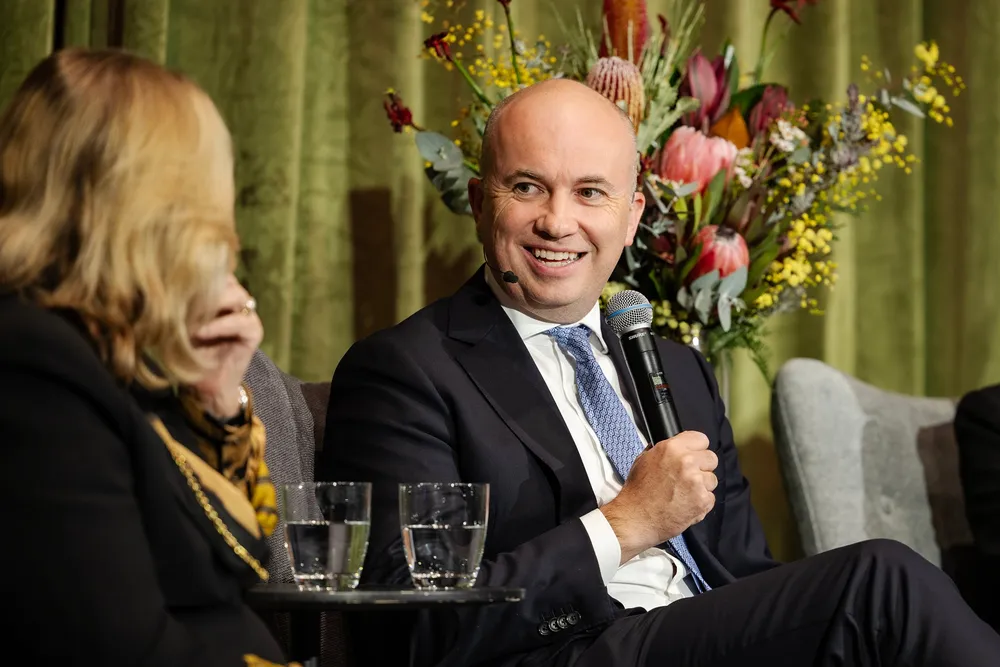Politicians told to 'get out of the way' of renewables revolution after wind farm rejection
A week after Queensland government cancelled key onshore wind project Australia's climate guru issues a stark warning

Australia is in danger of missing its renewable energy targets, especially if politicians use grass roots concerns about infrastructure projects as an excuse to slow down the energy transition, the country's top climate change advisor has warned.
Matt Kean, chair of the Climate Change Authority (CCA), was giving the Australian Museum’s annual Talbot Oration speech when he warned that the federal government may fail in its mission to source 82% of Australia's electricity from renewable sources by 2030.
He was speaking one week after the state government of Queensland cancelled an onshore wind project that had previously been seen as a key part of the state's plans to build a clean and reliable grid.
Decarbonising Australia's electricity network was among the election promises that helped Australia’s Labor Party to power in 2022.
Prime Minister Anthony Albanese — who won re-election last month — won his first term in office on a pledge to turn the coal-reliant country into a “renewables superpower”.
Kean cited data from Dr Gabrielle Kuiper, director of Australian think-tank Superpower Institute, to warn that the country could fall the equivalent of 10GW short of the renewable generation capacity required to meet targets.
"Given we need to add about 6GW a year of solar or wind farms to 2030, such a projected shortfall is sizable," he told his Sydney audience.
Queensland shocker
A week earlier, a Liberal-National coalition government in the state of Queensland abruptly cancelled a big onshore wind project called Moonlight Range, citing a lack of community support and insufficient consultation to justify the reversal.
The developer, Greenleaf Renewables, was planning to provide 450MW of additional capacity for the Queensland grid from a wind farm, as well as a battery energy storage system (BESS).
The project was given the nod last year by Queensland’s State Assessment and Referral Agency but these conditional approvals were issued prior to state elections held in October 2024, and were reversed by the new state government last week.
The rejection decision, which was signed by state planning minister Jarrod Bleijie, cited local opposition to the presence of a non-resident workforce during construction as the main problem.
The decision drew fierce criticism among renewables advocates because the same Queensland government simultaneously announced that it would open up an additional 16,000 square kilometres of acreage for natural gas exploration and has recently outlined plans to extend the life of coal-fired power stations.
Critics also questioned the justification that 88% of residents were found to be opposed top the wind project, as this only amounted to about 155 members of a small community.
“They do not like renewables, and that’s why they are cancelling these projects. But ultimately, every Queenslander will pay a price through higher power bills,” Queensland’s Labor leader, Steven Miles commented on the decision.
In a statement, Queensland Conservation Council Senior Campaigner Stephanie Gray said the state government was sending “mixed signals to the clean energy sector” by revoking the approval and extending the life of coal power stations.
In his Sydney speech, Kean criticised politicians who he said aim to "prolong the life" of fossil fuel industries.
“To those politicians who are still providing a cover for vested interests, I say get out of the way. Stop holding our country back and stop holding your political parties back. Try acting in the national interest – or take the low road to political oblivion,” he said.
Upturn for offshore wind?
In the lead-up to Australia's May federal elections, criticism of Labor's energy plan was a key campaign platform of the Liberal-National Coalition, including a promise to scrap four of the six declared offshore wind zones.
But, while responsibility for building and maintaining electricity systems in Australia largely falls to the states and territories, Labor’s resounding election has provided encouragement and policy stability to a fledgling offshore wind sector that had been losing momentum.
Even in the Illawarra area, where opposition to the offshore zone flagged for development was most vocal due to its relative proximity to Sydney’s beach suburbs, the Liberal Party failed to gain ground.
An auction to allocate Contracts for Difference for projects off the coast of Victoria is expected to provide a barometer reading for continued interest in Australia's offshore wind sector later this year.
By embracing the CfD format, Victoria has blazed a path in offshore wind for the rest of Australia, with dozens of projects bidding for capacit in its Gippsland offshore wind zone.
Victoria is also the only state jurisdiction in Australia to have a legislated target for offshore wind, set at 9GW by 2040.
Perceptions of political risk have not faded yet, however.
In his museum speech, Kean called for approvals for big renewable and energy transition projects to be accelerated in the wake of the Australian election result.
On the other hand, Energy minister Chris Bowen announced his decision to offer a feasibility licence to the 1.5GW Bunbury Offshore Wind Farm project off Western Australia.
The Climate Change Authority (CCA) is a statutory independent advisor to the Australian government.
(Copyright)